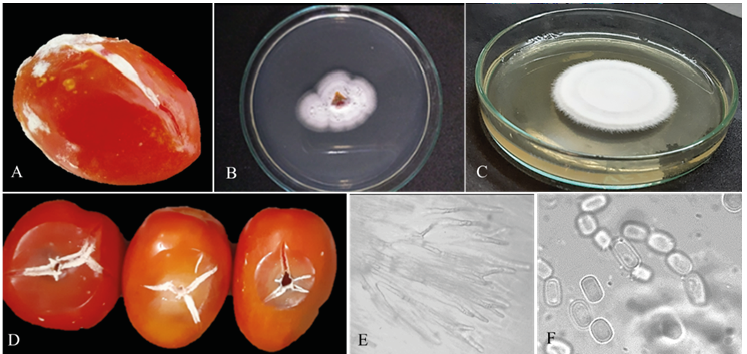 |
|
Geotrichum candidum causal agent of tomato sour rot, has the potential to infect a wide variety of fruits and vegetables. In this work, the In vitro antifungal activity of Chitosan (Chi), Potassium Sorbate (PS), Sodium Bicarbonate (SB), and Sodium Carbonate (SC) and their mixtures were evaluated. The PS and SC treatments showed a 100% inhibition of mycelial growth (MG), germination, and sporulation. Regarding SB, 1.5 and 2.0% concentrations inhibited 87.5 and 88.5% of MG and affected germination and sporulation. Chi at 1.0, 1.5, and 2.0% inhibited MG by 63.1, 62.4, and 42.1%, respectively, affecting germination and sporulation. The combination of chitosan at 0.5% + SP 0.5% and Chi 0.5% + SC 0.5% demonstrated 99.3 and 71.4%, inhibition of MG, and affected germination and sporulation. Chi 0.5% + SB 1.5% showed no effect on MG, and at 0.5 and 1.0%, the growth rate of the mycelium increased, as well as sporulation and germination. In conclusion, chitosan and salts are an option for the use of synthetic fungicides in the control of pathogenic fungi in postharvest, with low toxicity, and are friendly to the environment.
Keywords: Lycopersicum esculentum L, antimicrobial activity, chitosan, GRAS substances, Geotrichum candidum.
|
|
 |

